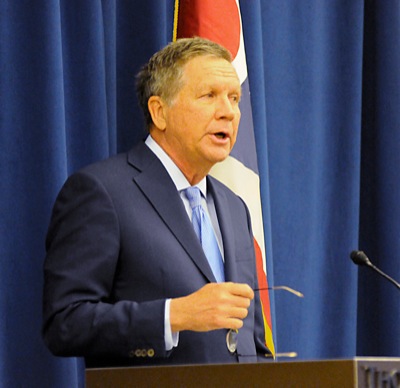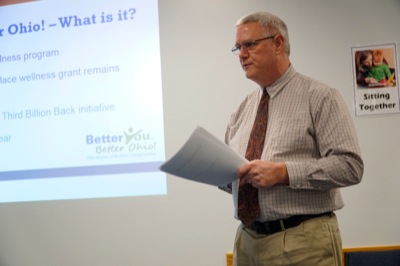Thursday, February 1st, 2018
St. Marys board opts for income tax ballot levy
By Ed Gebert
ST. MARYS - School district voters will likely see a five-year, 1.5 percent earned-income tax levy request on the May 8 ballot.
St. Marys City Schools board members unanimously approved the levy request at a special meeting on Wednesday. Member Brian Little did not attend due to a serious illness in the family. If passed, the tax would raise just over $3.65 million per year for the district's operating expenses.
The earned-income tax would affect all wage earners receiving a W-2 form from employers, the self-employed and business owners. Those earning only retirement benefits or Social Security income would not be affected.
The board on Jan. 10 sent six different levy options to the state before deciding which one to pursue. The options included traditional property taxes, traditional income taxes of either 1.25 percent or 1.5 percent or earned-income taxes of either 1.5 percent or 1.75 percent.
Board president Karl Dammeyer said the 1.5 percent earned-income levy choice gives board members a responsibility to control spending, adding St. Marys is the only Auglaize County district without an income tax levy and all but one Mercer County district have one.
"I think when (district residents) look at their property taxes now, they all increased, and an income tax might seem a more reasonable way to go," board member Ronda Shelby said.
The board last asked voters for new money in 2013, when a combined property and income tax levy failed, receiving only 39.7 percent of the vote. The last new money approved by voters was a five-year emergency operations levy in 2004. It was renewed in 2009 and in 2014 and will be up for renewal again in 2019 if board members decide to pursue it.
"You can imagine since then, all the increases you've had in utilities and just basic costs to run schools on just what we have. I think that's also what (voters) need to keep in mind," Shelby said.
The district went into deficit spending at the end of June last year. If the tax issue fails and spending remains at the current rate, the district's cash reserves would be used up by 2020, according to district treasurer Robin Laman. However some spending changes are already being considered.


